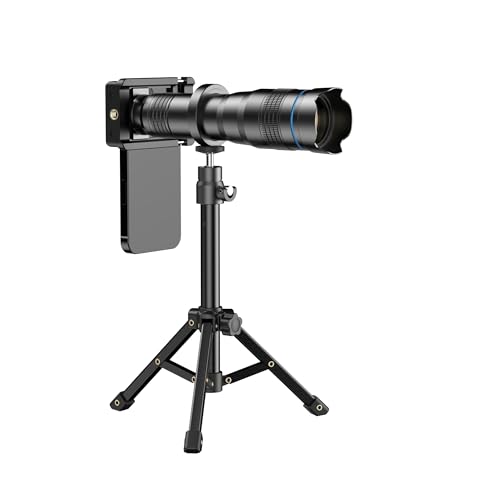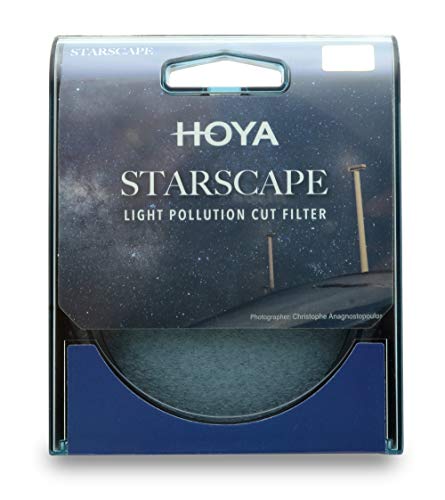



As a professional photographer specializing in product photography, I have spent countless hours experimenting with different camera settings to achieve the perfect shot. Product photography requires attention to detail and precision to showcase the product in the best possible light. In this article, I will share some of the best DSLR camera settings that I have found to be effective for capturing stunning product images.
One of the most important settings to consider when shooting product photography is the aperture. A wide aperture, such as f/2.8 or f/4, can create a shallow depth of field, allowing you to blur the background and draw focus to the product itself. This can result in a clean and professional-looking image that highlights the product’s details. However, if you need more depth of field to ensure the entire product is in focus, consider using a narrower aperture, such as f/8 or f/11.
Another crucial setting to consider is the shutter speed. When shooting product photography, you want to ensure that your camera is steady to avoid any motion blur. I recommend using a tripod to stabilize your camera and selecting a shutter speed of at least 1/125 of a second to capture sharp images. Additionally, adjusting the ISO setting can help you achieve the desired exposure without introducing too much noise into your images.
My Preferred DSLR Camera Settings for Product Photography
When it comes to capturing stunning product images with a DSLR camera, the right settings can make all the difference. Through my experience in product photography, I have identified a set of camera settings that consistently yield high-quality results.
One of the key settings I always adjust is the aperture. By setting a narrow aperture (higher f-stop number), I can achieve a deep depth of field, ensuring that the product is sharp and in focus from front to back. This is crucial for product photography, where every detail matters.
My Recommended DSLR Camera Settings:
- Aperture: Narrow (higher f-stop number) for deep depth of field
- Shutter Speed: Adjust based on lighting conditions to avoid blurriness
- ISO: Keep as low as possible to minimize noise
- White Balance: Set according to the lighting situation for accurate colours
- Focusing Mode: Use manual focus for precise control over what is in focus
- File Format: Shoot in RAW for maximum post-processing flexibility
By fine-tuning these settings and experimenting with different compositions and lighting setups, I have been able to consistently produce professional-looking product images that showcase the details and quality of the items I am photographing. Remember, practice makes perfect, so don’t be afraid to experiment and find the settings that work best for you and your specific products.
Understanding the Basics
When delving into product photography with a DSLR camera, it’s crucial to grasp the fundamental concepts that will help you achieve stunning results. One of the key elements to understand is the importance of proper camera settings, as they play a significant role in capturing high-quality product images.
First and foremost, familiarize yourself with the manual mode of your DSLR camera to have full control over settings such as aperture, shutter speed, and ISO. Adjusting these settings allows you to customize the exposure, depth of field, and overall image quality according to the specific requirements of your product photography.
- Aperture: The aperture setting determines the amount of light entering the camera lens and influences the depth of field in your product images. A lower f-stop number results in a shallower depth of field, ideal for highlighting a single product or creating a blurred background.
- Shutter Speed: Setting the appropriate shutter speed is crucial for capturing sharp and clear product photos. Faster shutter speeds are recommended for still products, while slower speeds can be used for creative motion blur effects.
- ISO: Adjusting the ISO setting allows you to control the camera’s sensitivity to light. A lower ISO value is suitable for well-lit environments, while higher values are beneficial for low-light conditions but may introduce noise to the images.
Choosing the Right Lens
When it comes to product photography, selecting the appropriate lens is crucial for capturing sharp and detailed images. As a photographer, I always consider the focal length and aperture of the lens to achieve the desired results.
For product shots, I prefer using a prime lens with a focal length between 50mm and 100mm. This range allows me to maintain a comfortable shooting distance while producing images with minimal distortion and high clarity.
Key Factors to Consider:
- Focal Length: Opt for a lens with a medium focal length to avoid perspective distortion and achieve a natural look.
- Aperture: Choose a lens with a wide aperture (e.g., f/2.8 or lower) for better control over depth of field and light intake.
- Macro Capability: Consider a lens with macro capabilities for capturing intricate details and textures in close-up shots.
Setting the Aperture
When it comes to product photography, one of the most crucial settings to consider on your DSLR camera is the aperture. The aperture controls the amount of light that enters the camera and also affects the depth of field in your images. It is important to choose the right aperture setting to ensure your product photos are sharp and well-focused.
In product photography, a smaller aperture (higher f-stop number) is generally preferred to ensure that the entire product is in focus. This is especially important when photographing products with intricate details or textures. A smaller aperture also helps to create a sense of depth in your images, making the product stand out against the background.
- Tip: Experiment with different aperture settings to find the ideal balance between sharpness and depth of field for your product photos.
- Pro tip: Use a tripod to keep your camera steady when shooting at smaller apertures to avoid camera shake and blurry images.
Adjusting the Shutter Speed
When it comes to product photography, one crucial setting you need to pay attention to is the shutter speed. The shutter speed determines how long the camera’s sensor is exposed to light when you take a photo. This setting can greatly impact the sharpness and clarity of your product images.
For product photography, it’s generally recommended to use a slower shutter speed to allow more light to enter the camera and capture more detail in your products. However, if you’re shooting handheld or capturing moving products, you may need to increase the shutter speed to avoid motion blur.
- Slow Shutter Speed: Ideal for static products or when shooting on a tripod. It allows more light into the camera, resulting in brighter and more detailed images.
- Fast Shutter Speed: Useful for capturing moving products or shooting handheld. It helps freeze motion and prevents blur in your product photos.
Controlling the ISO
When it comes to product photography, one crucial setting to pay attention to is the ISO. ISO determines the camera sensor’s sensitivity to light, affecting the brightness and graininess of the image. To achieve optimal results, it’s essential to understand how to control the ISO settings on your DSLR camera.
Start by setting the ISO to the lowest value possible (usually 100 or 200) to maintain image quality and reduce noise. In well-lit environments, a lower ISO setting will produce sharper and cleaner images. However, in low-light situations, you may need to increase the ISO to capture more light and avoid blurry photos.
- Use a tripod to stabilize the camera and prevent motion blur when shooting at higher ISO settings.
- Experiment with different ISO values to find the right balance between image quality and exposure.
- Remember that higher ISO settings can introduce noise, so try to keep it as low as possible while still achieving the desired exposure.
Using White Balance for Accurate Colors
White balance is a crucial setting in product photography as it helps ensure that the colors in your images are true to life. By adjusting the white balance, you can eliminate unwanted color casts and achieve accurate and natural-looking colors in your photos.
Summary:
When shooting product photography, it’s important to set the white balance correctly to achieve accurate colors. Use the appropriate white balance preset or manually adjust it based on the lighting conditions. Experiment with different white balance settings to find the one that best suits your product and environment. By paying attention to white balance, you can enhance the overall quality and appeal of your product photos.
Best dslr camera setting for product photography
Features
| Part Number | BS-01 |
| Model | 15551 |
| Color | black |
| Price history for Versatile SmallRig Tripod, Aluminum Design | |
|---|---|
|
Latest updates:
|
|
Features
| Part Number | PU5041B-F |
| Warranty | 12 month manufacturer |
| Color | Black |
| Size | 16*16 Inch |
Features
| Part Number | 0570C002 |
| Model | 0570C005AA |
| Warranty | 1 year coverage for parts |
| Color | Black |
| Is Adult Product | |
| Release Date | 2015-05-21T00:00:01Z |
| Size | Lens Only |
| Language | English |
| Publication Date | 2019-06-17T00:00:01Z |
Features
| Part Number | KF09.007V1 |
| Model | TM2324 |
| Warranty | 1 Year |
| Color | Black Gold Upgrade |
| Size | Complete Tripod 72" Aluminum |
Q&A:
What are the best DSLR camera settings for product photography?
For product photography, it is recommended to use a small aperture (high f-stop number) to ensure maximum sharpness and depth of field. Set your camera to manual mode and adjust the aperture to around f/8 to f/11. Keep the ISO low (around 100-400) to minimize noise. Use a tripod to ensure stability and sharp images. Adjust the white balance according to your lighting conditions, and shoot in RAW format for better post-processing options.
How can I achieve the best lighting for product photography with a DSLR camera?
To achieve the best lighting for product photography, it’s important to use diffused natural light or artificial lighting sources like softboxes or umbrellas to create soft, even lighting. Avoid harsh shadows by diffusing the light or using reflectors to fill in shadows. Experiment with different lighting angles to highlight the product’s features and textures. Consider using a grey card or white balance tool to ensure accurate colour reproduction in your photos.






























